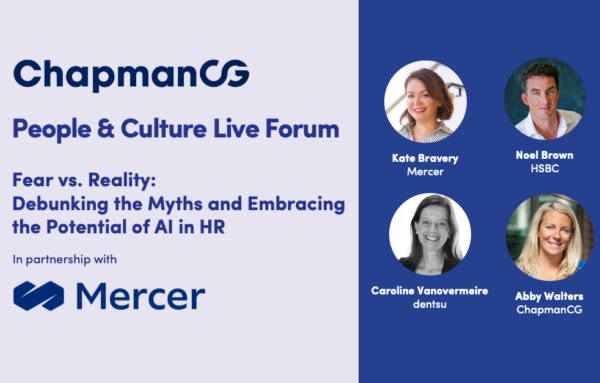Located at Firmenich’s impressive regional offices in Singapore, predictive HR analytics was the order of the day at our latest HR leaders roundtable in a series themed around ‘How HR is Evolving for the Future’.
We were joined by regional leaders from a host of major MNCs including including Abbott Laboratories, Ecolab, BP, Barry Callebaut, CBRE, PayPal and Procter & Gamble to name a few. Firmenich’s SVP HR Asia & Global Talent Nicholas Egger shared insights on his pioneering and successful implementation of predictive HR analytics within the 120-year-old global flavour and fragrance organisation, which provided the foundation for a stimulating discussion on how to approach the development and implementation of value adding HR predictive analytics models. This is a relevant topic for global organisations concerned with evolving their HR functions from being retrospective and focused on reporting to an increasingly pre-emptive and proactive mentality.
Our discussions highlighted the importance for HR leaders to address some key facets when considering an HR predictive analytics implementation.
Build your Business Case
Understand your business and be clear on what you’re looking to achieve, why and what metrics you require. Effective predictive analytics in HR has the capability of providing huge insight and impact on the bottom line and positioning it as such with business leaders is fundamental in ensuring buy in from the business. There are multiple potential uses for HR predictive analytics including identification of key talent at high risk of attrition, leadership/promotion selection insights and top candidate attraction and selection. When developing predictive analytics models, HR leaders need to identify focal points that have the most relevance to their own business and what is likely to have the most significant impact – that’s your start point.

Data, Data, Data
Success fundamentally lies in the accuracy and integrity of your data. A key learning from Firmenich’s journey was to start small and start simple with the accurate data that you have from your existing operations (e.g. historic headcounts, compensation figures etc). Once you have it right you can scale up, but start small and with a thorough focus on data preparation and ensuring data inputs are accurate and relevant. This stage will take some experimenting before you decide on the final list of inputs. Once finalised you must remain consistent moving forward to ensure the accuracy of the model.
Another learning was to allocate the ownership of data management to one individual who can manage the operational side, to ensure accuracy, efficiency and data integrity. Transparency and the accountability for the accuracy of the data is essential, as is installing an appropriate frequency and rigour in the process. By reviewing and analysing the data monthly it will become habitual, any less frequent and you dilute the impact.
Evolving HR Talent Landscape
The process of converting huge chunks of raw data into meaningful models is a complex one and data scientists are likely to become a fundamental part of any HR talent bench as we see predictive analytics and AI maturing and becoming more mainstream in HR. HR leaders need to be looking at the current skillsets within their HR teams and the areas where current capabilities are likely to be lacking. In the next 5-10 years there will be an increasing need for non-traditional HR backgrounds and skill-sets within HR teams and we will see a new wave of core HR roles emerge. Identifying these skill gaps and understanding where to find and how to attract this new talent will be key.
Plan, Action, Respond
Don’t let all the data legwork go to waste through a tardy response to the results that the predictive analytics models are producing. Be proactive in reacting to what the data is telling you; as soon as you have it sit down with the respective business leaders and have meaningful conversations driven by the data insights and formulate strategies to action. The end goal is to use predictive analytics as a tool to boost business results and as such optimise the strategic stature of HR as a function in the boardroom. HR leaders must strive to use these tangible insights to inform and influence decisions at the C-suite level.
By no means is this an exhaustive list of considerations given the intricacies of what is a complex and challenging process to undergo, however the above are fundamental considerations that any HR leader must address when looking to embark on and harness the benefits of a successful predictive analytics implementation.
We will see a rapid uptake and maturing of predictive HR analytics models in coming years given the insights and business impact successful models can achieve. Though still a relatively fledgling field in HR, that has to date been pioneered by a handful of large MNCs and through the trial and error of entrepreneurial, forward thinking HR leaders such as Nick Egger at Firmenich, predictive analytics in HR will become increasingly mainstream and essential part of any HR strategy. A tool that has the potential to significantly enhance the strategic prowess of HR in the boardroom, embarking on the implementation of predictive analytics should not be overlooked by any HR leader.
ChapmanCG would again like to thank the team at Firmenich for hosting the session and thank you to the all the senior HR leaders in attendance for their input and insights.
Key Contributors:


 Ringo Lau
Ringo Lau Abby Walters
Abby Walters Stefanie Cross-Wilson
Stefanie Cross-Wilson Devijaya Nair
Devijaya Nair Fleur Daniell
Fleur Daniell Kalkin Cao
Kalkin Cao Katherine Qu
Katherine Qu Lorraine Hwang
Lorraine Hwang René Rosso
René Rosso Kirsty Jucker
Kirsty Jucker Andrea Merrigan
Andrea Merrigan Orelia Chan
Orelia Chan Stanislav Medvedev
Stanislav Medvedev Finian Toh
Finian Toh Tim Rayner
Tim Rayner Nicola Hasling
Nicola Hasling
 Elaine Khoo
Elaine Khoo


